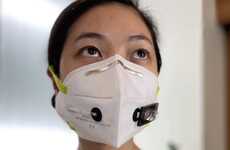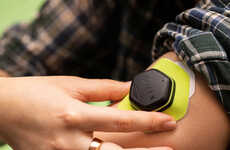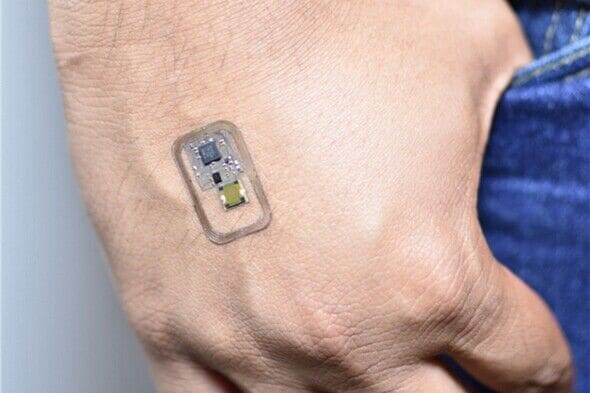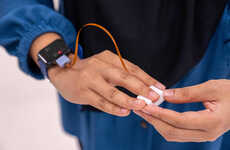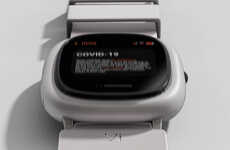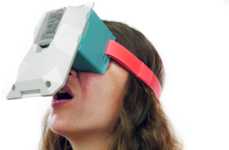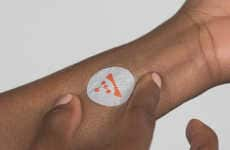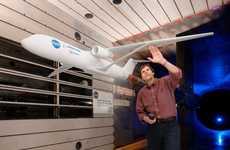
This Skin-Worn Sensor Measures Nicotine Levels in the Air
Michael Hemsworth — December 10, 2021 — Lifestyle
References: pubs.acs.org & newatlas
This skin-worn sensor has been developed by scientists at the University of Arizona and the RMIT University in Australia as a battery-free device that could be utilized for detecting nicotine levels in the air surrounding the user.
The compact sensor is capable of being adhered onto the skin in an area of the body that is traditionally exposed like the back of the hand and would go to work capturing information related to substances in the air. The device would thus be able to detect for aerosolized nicotine molecules and would relay this information back to an NFC (near-field communication)-compatible device such as a smartphone.
The skin-worn sensor could be utilized for detecting nicotine levels in traditional cigarette smoke as well as electronic cigarettes.
Image Credit: ACS Sensors 2021
The compact sensor is capable of being adhered onto the skin in an area of the body that is traditionally exposed like the back of the hand and would go to work capturing information related to substances in the air. The device would thus be able to detect for aerosolized nicotine molecules and would relay this information back to an NFC (near-field communication)-compatible device such as a smartphone.
The skin-worn sensor could be utilized for detecting nicotine levels in traditional cigarette smoke as well as electronic cigarettes.
Image Credit: ACS Sensors 2021
Trend Themes
1. Skin-worn Nicotine Sensors - Developing compact skin-worn sensors for tracking nicotine levels in the air surrounding the user may create opportunities for developing alternative health monitoring wearables.
2. Battery-free Wearables - Developing battery-less wearables capable of accurately detecting nicotine levels in the air could help in lowering long term expenses and increasing user convenience for health monitoring.
3. Nfc-compatible Wearables - Developing skin-worn sensors that communicate with an NFC-compatible device such as a smartphone could increase adoption and help spark the creation of similar wearables for monitoring other substances.
Industry Implications
1. Healthcare Industry - Nicotine detecting wearables could create new opportunities for healthcare providers to monitor the health of recovering addicts and smokers, and provide previously unavailable data for doctors.
2. Consumer Electronics Industry - The development of compact and NFC-compatible wearable sensors for tracking nicotine levels in the air could pave the way for development of new smartwatch and wearable technology products.
3. Vaping Industry - As nicotine detecting wearables increasingly popularize, it could push the vaping industry to adopt additional measures aimed towards lowering the health risks associated with vaping.
5.6
Score
Popularity
Activity
Freshness



